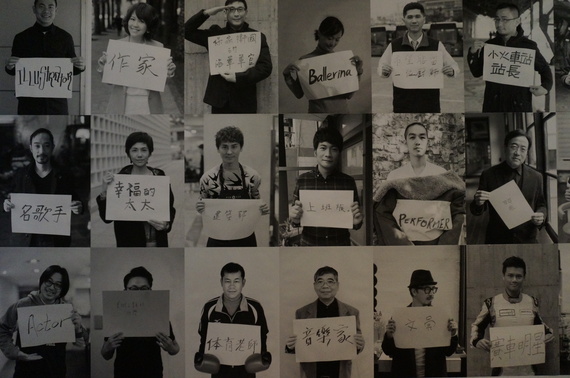
I've spent a decade running circles in the rat race going from one company to the next. Only recently have I finally set myself free from my work cage and started working on things that I truly care about.
And it feels great.
Don't get me wrong. I consider myself fortunate to have had the opportunity to work over the course of my 10-year corporate career in reputable companies, including Alibaba, Cisco, Box, and SanDisk. From these experiences, I've come away with 10 lessons about work and the corporate world that I wish I could have known when I had graduated college at age 22.
I share this list with you so that you hopefully can learn from my experiences. Ultimately, it's my hope that you are able to do the work that you were created to do, no matter what stage of life you are in.
1. The worst investment you can make in life is trading hours for dollars.
Time is the most valuable currency in life. Once you start falling into the trap of trading in your most valuable time of each day to a job that doesn't provide meaning for you, you give up a small piece of yourself each day that you continue in this vicious cycle. Trading your hours purely for a paycheck and the promise of deferred dreams -- vacations, house, savings, retirement, etc. -- is the worst investment you can make in the most productive time of your life.
2. Job security is a fallacy, at any position.
Getting a good job at a stable company doesn't guarantee anything. New hires are called "headcount" for a reason. People can be fired as easily as they are hired. I've seen it at every level of the company, even at the biggest of companies. Not even the CEO or the VPs are immune to being cut. On the contrary, the higher up on the ladder you are, the more scrutinized your position becomes.
3. Your work will be your life.
What you do from 9 a.m. to 5 p.m. is your life. Most corporate environments in America are so pressure packed that clocking in only eight hours a day is looked down upon. Coming in early and leaving late is viewed as the norm. Emails on weeknights and prepping for the week with emails on Sunday nights doesn't leave any room for headspace to do the other things in your life like taking care of your family, cooking, exercising, reading, etc.
4. You are the company you keep.
You spend more time with your co-workers than you do with any other people in your life. And unfortunately, a lot of the time spent in the corporate world is consumed by making efforts to fit-in. You're judged on what you wear to work, how you interact with others, what results you're bringing to the team, and how "dedicated" you are. And because you need to pretend to fit-in, if your co-workers--especially those higher up on the ladder than you--have a different value system or lifestyle than you, eventually you'll be forced to make hard decisions about what's really right and wrong. Choose your company wisely.
5. Your boss is the most important relationship you'll have at work. Make sure it's a good one.
It's been proven in studies that the single most important factor in job satisfaction is a healthy relationship with one's boss. I've experienced both ends of the spectrum and can affirm that your relationship with your boss will make or break your success at work. When your boss believes in you, trusts you, and gives you the autonomy and flexibility to make your contributions, you'll flourish and be handsomely rewarded in your work. On the opposite end of the spectrum, when your boss is insecure, power hungry, or just has a bad attitude, you'll never enjoy the success you've dreamed about because your boss will suffocate any chance for that to happen.
6. Trust your gut -- about the work, the opportunity, your boss, and your colleagues.
The job interview is a two-way street -- you're there to interview the people you'll be working with, just as much as they're there to interview you for the position. Every time I've veered from following my gut and have become blinded by the promise of stock options or a promotion, I've made bad decisions. Hindsight is 20/20 and like anything in life, you need to trust your gut and follow the hunger that truly motivates you every day.
"Your time is limited, so don't waste it living someone else's life. Don't be trapped by dogma -- which is living with the results of other people's thinking. Don't let the noise of others' opinions drown out your own inner voice. And most important, have the courage to follow your heart and intuition. They somehow already know what you truly want to become. Everything else is secondary."
~Steve Jobs
7. Start by asking yourself, Why?
More specifically, ask yourself, Why do I want to work here? Why do I want to do this? If the first things that pop in your head are money, stock options, and career advancement, then stop to think again. Really think long and hard about your Why. Is it happiness, mastery, autonomy, independence, and/or creative freedom that you're after? Is it optimal work-life balance? Is it an opportunity to challenge yourself to grow and make the change you want to see in the world? If not, then perhaps the position that you're looking at isn't for you. If you go after a position that only offers you external satisfaction (money, status, etc.), then chances are you're not going to be content in that position once you actually get all the external things you were chasing after.
8. Quality of life is more important than the quantity in life.
60-80 hour workweeks, 4-6 hours of sleep each day. This is the sad reality of a lot of people in the corporate world. When you overwork yourself, everything else suffers. Your health declines, your quality of sleep gets worse, your stress level increases, and your relationships suffer. If you're a workaholic and earning loads of money, in the end, is the sacrifice really worth it? You get flashier cars, bigger houses, vacation homes, fancy watches, and expensive meals. But do you actually get to enjoy any of it without your health, energy, time, and relationships intact? Quality trumps quantity. Aim for quality.
9. You'll make money doing things that you are passionate about, even if it's not obvious at first.
The people who are truly successful at what they do are the people who love what they do. And when I say love, they absolutely, unequivocally love what they do. I once heard a famous venture capitalist answer the question of how he makes his investments. He said that he invests in people who have a fire in their belly that drives them to make their ideas a reality. The great writers, musicians, actors, athletes, scientists, and entrepreneurs throughout history were truly great -- and monetarily rewarded -- because they had a deep, undeniable passion for their craft.
10. Own your story.
We all have a story to tell with our lives. Your story is unique to who you are and the experiences in your life. Don't ever let anyone try to write your story for you. Own your story, live it, breathe it, and write it every day of your life. Steven Pressfield said it best in The War of Art -- "Creative work is...a gift to the world and every being in it. Don't cheat us of your contribution. Give us what you've got."
This post originally appeared on LiveFamilyTravel.com. Images courtesy of the author.
--
Cliff Hsia is a father who is determined to live a better than normal life by traveling the world, slowly and purposefully, with his wife and two young daughters. He writes about travel, family, love, happiness, faith, and everything else that life throws at him.
Read Cliff's articles at Live Family Travel and connect with him on Facebook and Twitter.



